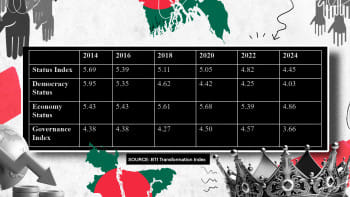Why study public policy and governance?

Some academic disciplines are broadly recognised yet their scopes and practical applications are often misunderstood. Public policy and governance studies, traditionally domains reserved for civil servants, policymakers, and scholars, involve developing, analysing, and implementing policies that dictate government operations and broader societal structures. Today, public policy has evolved into a dynamic arena in democratic societies worldwide. It is no longer shaped solely by policymakers; citizens, lobbyists, and various organisations also significantly influence public policies. Collectively, they strive to adhere to, challenge, or shape government rules, regulations, and laws, as well as lobby for policies that align with their interests.
Consequently, individuals with expertise in policy and governance are increasingly valuable in diverse organisational contexts. From powerful corporations to non-governmental organisations (NGOs), international NGOs, and foreign embassies, entities are actively seeking specialists who are adept in public policy to support or advance their objectives.
The rationale for studying policy and governance is clear: these fields equip individuals with the knowledge and tools to understand and influence the frameworks that underpin nearly all aspects of societal function. The pervasive role of government—from shaping social policies that affect national health and welfare to influencing educational systems and economic stability—is undeniable. A degree in public policy and governance provides critical analytical skills and insights necessary for tackling complex issues like climate change, public health, education, and economic development, rendering the discipline highly valuable.
Should one consider studying public policy and governance? Absolutely! There are approximately 2000 university majors available globally, ranging from engineering and medicine to social sciences, STEM, business studies, and the arts. Yet, finding a leading institution without a course in policy or governance is rare. Notable schools like Harvard University's Kennedy School, the Crawford School of Public Policy at Australian National University, and the Lee Kuan Yew School of Public Policy at the National University of Singapore stand out for their programmes in public policy, governance, or public administration.
In Bangladesh, prestigious institutions such as Dhaka University, Jahangirnagar University, and BRAC University, along with North South University's South Asian Institute of Policy and Governance (SIPG), offer robust educational programs in this field. SIPG's Executive Masters in Policy and Governance (EMPG) program caters to fresh graduates, executives, and business professionals. It includes scholarships for descendants of liberation fighters and offers various merit and need-based scholarships. EMPG students can also apply for positions as teaching or research assistants.
I completed my degree at SIPG within one year. My cohort included mid-level NGO, INGO, and embassy staff eager to advance their careers or deepen their understanding of Bangladesh's policy and governance framework. I spoke with a current EMPG student employed at a multinational corporation who pursued a Bachelor of Business Administration. He explained his motivation for studying policy and governance, noting that multinational companies today align their operations with Sustainable Development Goals (SDGs) and Environmental, Social, and Governance (ESG) standards, seeking candidates who grasp both the business and relevant policy issues.
Understanding policy and governance is crucial in today's global landscape, offering numerous opportunities across various industries for those aiming to significantly influence their careers, whether in Bangladesh or internationally. Therefore, studying public policy and governance is not just about building a career—it's about making a meaningful difference in your life and the lives of others.
Sakir Mohammad is a research associate at the South Asian Institute of Policy and Governance (SIPG), North South University, Dhaka. He can be reached at [email protected].
Views expressed in this article are the author's own.
Follow The Daily Star Opinion on Facebook for the latest opinions, commentaries and analyses by experts and professionals. To contribute your article or letter to The Daily Star Opinion, see our guidelines for submission.

 For all latest news, follow The Daily Star's Google News channel.
For all latest news, follow The Daily Star's Google News channel. 





Comments